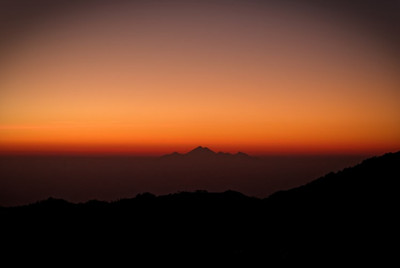
Algeria's state-owned Sonatrach has made the case for the country's new
draft hydrocarbon law, saying the need for reform was "urgent" given the
state of the country's reserves and exploration activity.
Algeria's cabinet approved the bill on October 13 to reverse
declining foreign investment by revising upstream contract terms and tax
rates. The law must still be approved by the National Assembly by the
end of the year.
In a statement on its website Sunday, Sonatrach said the in-depth
overhaul of the hydrocarbon legal regime -- in particular at the tax and
contractual levels -- was "essential to restore the attractiveness of
the sector in the context of low oil prices and increased competition
among producing countries to attract new investors."
The document was also sent for publication to the Algerian state news agency APS.
LAW PROTESTS
Sonatrach's intervention followed protests against the new law,
which put additional pressure on the embattled interim government and
added uncertainty to the country's ailing oil and gas sector.
Demonstrators in Algiers said the legislation was an illegitimate
action by caretaker officials, who are too closely allied to ousted
President Abdelaziz Bouteflika.
"This overhaul is urgent given the situation of our reserves,
long-term production profiles and the time to implement new projects,"
Sonatrach said, pointing to the average time of 10 years between winning
an exploration license and moving it to production.
"The new law is vital for Sonatrach to enable it to develop the
discoveries made in recent years," it said, adding that the development
of many finds is currently uneconomic due to the tax regime.
The draft law provides more flexibility in the contracts that
international oil companies sign with Sonatrach and revamps production
sharing terms. It also relaxes tax provisions for foreign partners.
Government officials have said the legislation would mark a return
to provisions in the 1986 hydrocarbons law, which led to significant
discoveries in the 1990s, before changesto the regulations in the
mid-2000s stagnated investment.
Sonatrach said Sunday the average number of discoveries by Sonatrach
in partnership with an international partner has not exceeded two per
year since 2010.
GAS DEVELOPMENTS
In the meantime, domestic gas consumption has doubled since the
early 2000s to 43 Bcm in 2018, reducing Algeria's ability to export gas.
Total exports of 47.3 Bcm last year were down by 2 Bcm on the
previous year's total of 49.3 Bcm, according to data from S&P Global
Platts Analytics.
Sonatrach said if new discoveries and developments were not
realized, "a structural deficit between the supply and demand of the
national gas market is inevitable by 2030."
Algeria holds 159 Tcf of proved gas reserves, but its unconventional
reserves could be much higher, with some 707 Tcf of recoverable gas in
shale formations, according to estimates.
Sonatrach last year said it was planning to produce some 20 Bcm/year of shale gas by 2030 rising to 70 Bcm/year by 2040.
"The country's potential for hydrocarbon reserves remains important
for both conventional and unconventional resources," Sonatrach said.
"Despite this potential, foreign companies have shown little
interest in exploration judging by the modest results of the four
tenders organized under the [previous regime]," it said.
"The revision of the current legal and fiscal regime is no longer a
choice but a necessity to adapt to the new global energy order
characterized by abundant supply, lower prices and a gradual
introduction of renewable energies into the energy mix."
Sonatrach in recent weeks has held talks with US majors Chevron and ExxonMobil about exploring in the country.

